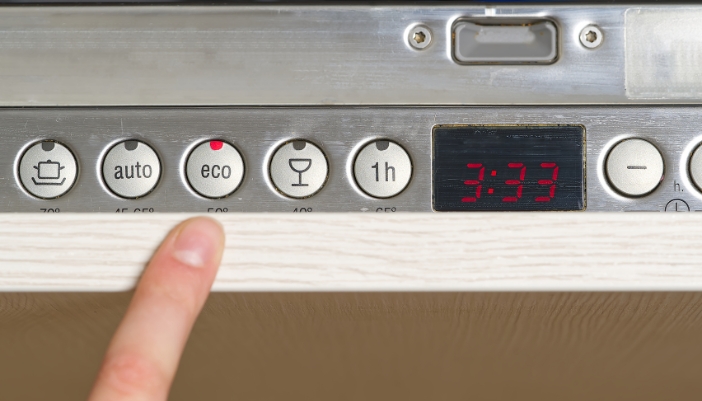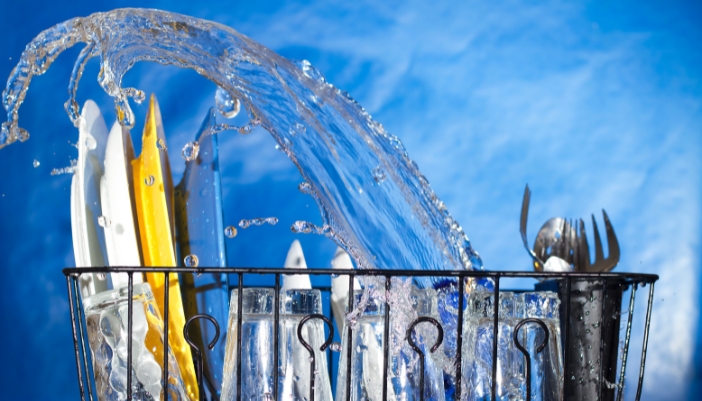When it comes to cleaning up after dinner, everyone has their favorite method: some love the quick, easy touch of a dishwasher, while others stick to hand washing for that perfect clean. It's a classic kitchen debate, dishwasher convenience against the thoroughness of handwashing. But when we dig into it, which method comes out on top?
You might think you know which one wins for being quicker and more cost-effective, but the answer might surprise you!
What’s the Cost

Tackling the dishes after a meal brings up the age-old question: is it cheaper to use a dishwasher or stick to hand washing?
- Dishwashers are an investment with upfront costs like purchase and installation, but they save more money in the long term since they don’t use as much water as hand washing.
- Hand washing’s initial costs seem low, but the continuous use of hot water can increase your energy bills!
- Energy-efficient dishwashers can help you save even more by using even less water, so it’s not causing the hot water to run constantly!
- Smart Washers can detect the size of the load and soil level and adjust the cycle accordingly, so you use just enough hot water every time!
Time Efficiency

In today's fast-paced world, every minute counts, especially when it comes to chores like doing the dishes. So, how do dishwashers stack up against hand washing in the race against the clock?
- Dishwasher: Using a dishwasher involves loading, setting it to run (which can be done overnight or while you're out), and unloading — a process that, apart from the loading and unloading, might take about 10 minutes.
- Hand Washing: Demands continuous time and effort; washing, rinsing, and drying a sink full of dishes can quickly take 30 minutes to an hour, depending on the pile's size.
Pro Tip:
Many dishwashers have features like delayed start to schedule the dishes around your time, but smart dishwashers let you program the dishes even more!
Making Every Drop Count

Of course, you can’t talk about washing dishes without discussing water usage! In this, there’s no contest — dishwashers have automated cycles that ensure only the necessary amount of water is used and reduce excess. Let’s see how the water usage stacks up across all models:
- Regular Dishwashers, on average, use about 6 gallons of water per cycle.
- Energy-Efficient Dishwashers can lower that usage to as little as 3 gallons per cycle!
- Smart Dishwashers are similar to energy-efficient models; they use around 3 gallons per cycle, with some even optimizing water use based on load size and soil level.
- Hand Washing can consume up to 27 gallons of water for the same number of dishes in a single dishwasher load.
Note:
Dishwashers also require less detergent per cycle than hand washing, lowering costs over time and reducing chemical runoff into the waterways!
For That Sparkly Clean

When it comes to getting your dishes sparkling clean and germ-free, the method you choose matters more than you might think!
- Dishwashing Cycles: Many dishwashers offer cycles that reach temperatures far higher than your hands tolerate, typically around 140°F to 150°F. These high temperatures, combined with effective detergents, are excellent at killing bacteria and other pathogens, providing a level of sanitation that hand washing often can't match.
- Hand Washing: While it can clean dishes, the water temperature for comfortable hand washing is significantly lower, which may not always eliminate bacteria effectively. Plus, sponges and dishcloths can harbor germs, potentially spreading them to each item washed.
Pro Tip:
Some think pre-rinsing is necessary before putting it in the dishwasher. However, most models and detergents are designed to handle food residue, making pre-rinsing unnecessary!
Do Some Things Need Hand Washing?

While dishwashers reign supreme for convenience and efficiency, there's a short list of kitchen items that fare better with the personal touch of hand washing. And knowing what those are can extend the life of some of your favorite kitchenware!
- Delicate Glassware: Fine crystal and hand-blown glass can be damaged by a dishwasher's high heat and intense water action. Make sure to use a soft sponge or cloth to avoid scratches!
- Sharp Knives: Dishwasher detergent can dull the edges of your knives, and the jostle of a wash cycle can pose a safety risk.
- Non-Dishwasher Safe Plastics: Some plastics can warp or melt in the dishwasher's high temperatures; these will usually say hand wash only!
- Cast Iron Pans: The seasoning that makes your cast iron skillet non-stick can be stripped away in the dishwasher. Use minimal water and a stiff brush to clean it.
- Wooden Utensils and Cutting Boards: Wood can crack and warp when exposed to a dishwasher's heat. Hand washing with mild soap and air drying will maintain their integrity.
Pro Tip:
Hand-dry glassware and sharp knives immediately to prevent spots or rust, but let wooden items air dry thoroughly to prevent warping!
The Clean Conclusion
At the end of the day, it’s obvious to see who wins in the dishwashing debate — it’s the dishwasher by a landslide! Even if certain items need hand washing, the time, cost, and cleanliness of a dishwasher are paramount! So, if you don’t have one or need to upgrade your dishwasher, Davies Appliance has you covered with our wide variety of brand names. And if you have any questions, we’re a call or a visit away!